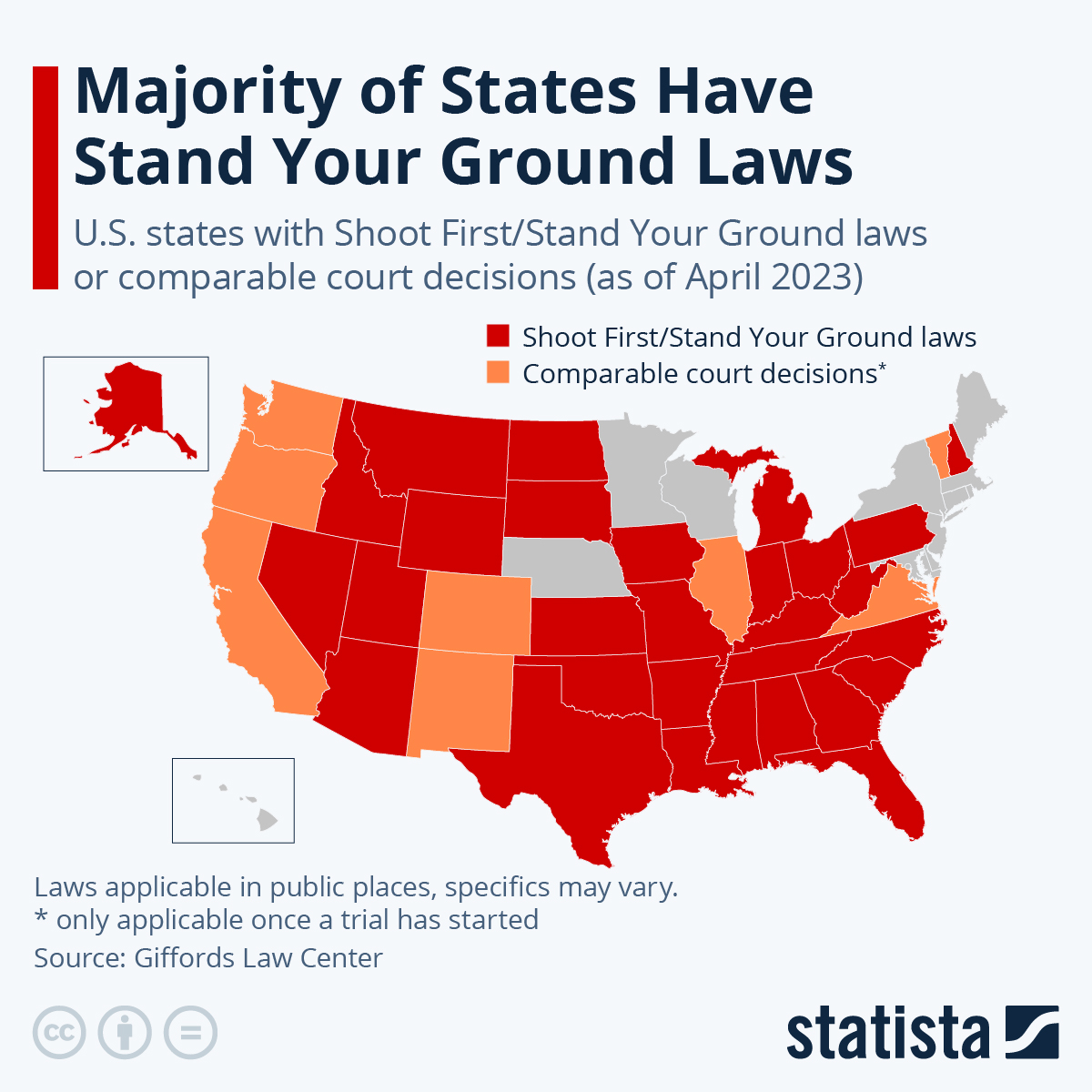After a series of highly publizised shootings in the U.S., Stand Your Ground laws – also called Shoot First laws – are back in the news.
Data by the Giffords Law Center shows that these type of laws are common across U.S. states.
You will find more infographics at Statista
As Statista’s Katharina Buchholz reports, they specify that people are allowed to use deadly force if they feel like their life or health is threatened in a public place without needing to try to retreat.
According to Giffords, U.S. law largely agrees that this is also the case for private property, for example if a homeowner feels threatened by an intruder. In several more states that don’t have Stand Your Ground laws – including California, Illinois, Oregon and Washington – precedents exist that could influence how an assault, manslaughter or murder case goes after a trial has started (while in Stand Your Ground states, police could decide to not bring any charges based on these laws).
On April 13, Black teenager Ralph Yarl was shot by a homeowner after going to the wrong address in Kansas City and was seriously injured. Andrew D. Lester, a 84-year-old white man, was charged with assault in the first degree.
On April 17, Kaylin Gillis, a 20-year-old white woman, was fatally shot in upstate New York after the car she was riding in went into a wrong driveway. The shooter, 65-year-old Kevin Monahan, was charged with murder.
In another case where public area Stand Your Ground laws could apply, two cheerleaders were shot and wounded in Texas after one of them accidentally got into the wrong car in a supermarket parking lot after their practice on April 18. However, the subject – 25-year-old Pedro Tello Rodriguez Jr. – has been charged with deadly conduct, meaning he used a weapon recklessly, threatening, or dangerously.
While in all three cases, charges have been brought, Stand Your Ground laws as well as laws pertaining to private property – also referred to as Castle Doctrine laws or Make My Day laws – could still influence these cases and could theoretically see charges dropped or cases won for the defendants.
However, in the Kansas City case, the prosecuter has said he does not see the necessary pre-condition of threatening behavior and self-defense fulfilled when Ralph Yarl was shot through the door of the home. In the New York state case, the county’s sheriff was quoted as saying that “there was no reason for Mr. Monahan to feel threatened, especially as it appears the vehicle was leaving.” While no such info was available on the third case, the subject is reported to have followed the two women to their car before shooting, likely exceeding the limits of Stand Your Ground legislation. What remains is the question how perceived rights under these types of laws and doctrines influence shooters’ seemingly erratic behavior following what could be considered everyday mix-ups.









